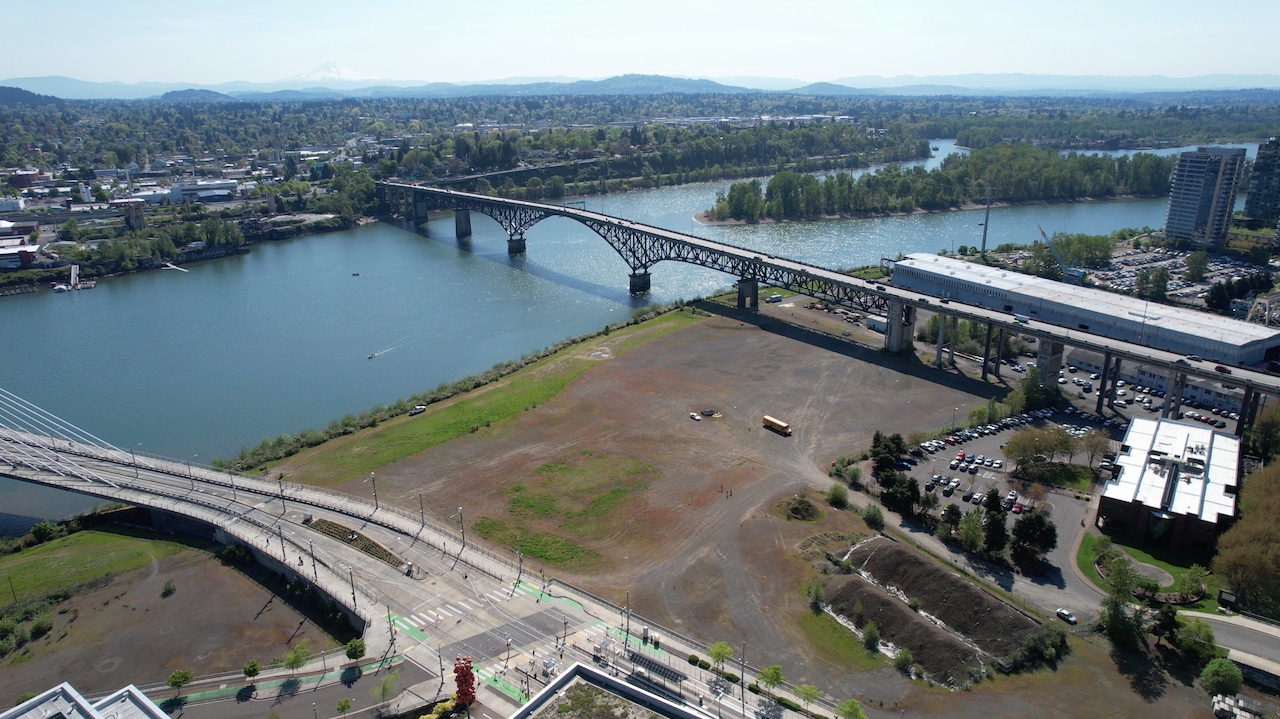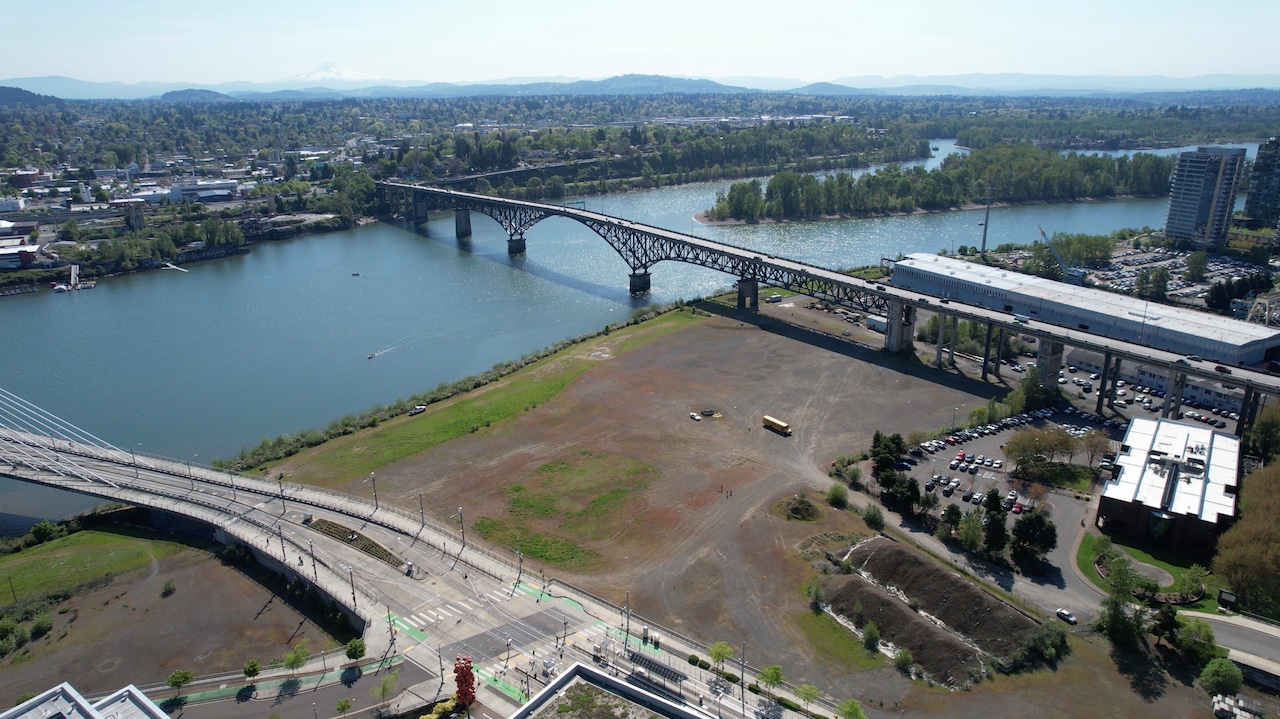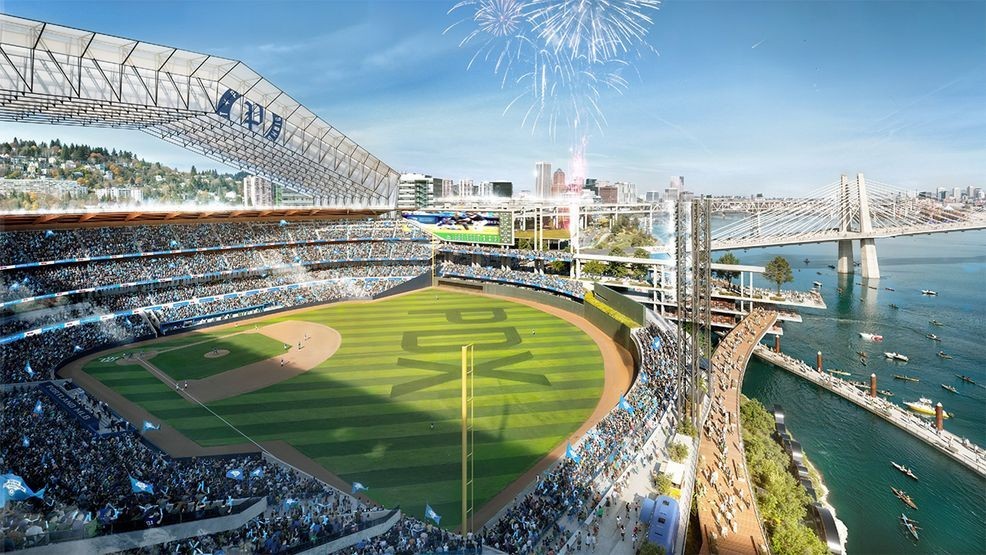
Urban. Rural. Republican. Democrat.
Lawmakers of all stripes have signed off on a bill that authorizes $800 million to help fund a Major League Baseball stadium in Portland. They’re hoping to lure one of two expansion franchises the league plans to award by early 2029, and to put the team on Portland’s South Waterfront.
The Oregon Senate voted overwhelmingly in favor of Senate Bill 110 in April, and the state House passed it Tuesday with a vote of 46 to 6. Gov. Tina Kotek has endorsed the effort and is all but certain to sign the legislation when it reaches her desk.
Rather than pull the money straight from Oregon’s general fund, plans call for diverting income taxes generated by the team’s players and staff to pay off the bonds. Oregon has had such a “jock tax” on the books since 2003, but that iteration limited revenue to $150 million.
Skeptics doubt that the taxes would generate enough to reach the new, $800 million target. Supporters say it would be up to the team to make up any shortfall, and to come up with the rest of the money to build a $2 billion ballpark.
“The stadium is the economic and cultural shot in the arm that Portland needs to swing out of the doom loop,” said Rep. Daniel Nguyễn, D-Dunthorpe.
Some Republicans and rural lawmakers cautioned that Portland’s reputation for a diminished quality of life might impede the success of a new franchise. House Republican leader Christine Drazan took a more measured tone and cast baseball as a major opportunity for Oregon’s largest city.
“I am anxious for Portland to be a strong place for investment again. I am anxious for the rebirth of this city,” she said. “It gives us an opportunity to hold city leaders accountable for quality-of-life issues.”
Despite the broad political support, Oregon may still be an underdog in the race for an expansion franchise. Major League Baseball has indicated it wants one new team in the western U.S. and Portland is competing with Salt Lake City, which already has an ownership group, public funding package and ballpark site.
Backers of Portland’s bid are playing catch-up. They haven’t identified a principal owner for the city’s prospective franchise, and it’s not clear who — if anyone — would pay several billion dollars in expansion fees and stadium costs to bring a team to Portland.
The Portland Diamond Project, the private group leading the city’s bid, hasn’t specified who is funding its effort or how much it has spent. Organizers floated several possible locations before settling on the former Zidell Yards shipbuilding site on a narrow strip of land between the Ross Island Bridge and the Tilikum Crossing.
The property offers terrific views of the Willamette River and great access to public transit, but few routes to the ballpark for private vehicles. Beyond that, backers have acknowledged the soil may be toxic on the former industrial property. And the site is in a liquefaction zone, meaning the ballpark would need expensive supports to ensure it could survive a major earthquake.
The ballpark’s supporters say they are working on ways to address all these issues but haven’t identified any of them publicly. And state lawmakers haven’t pressed for answers, even on the question of who might own the franchise.
Critics contend that, even if a Portland baseball team proved popular, it wouldn’t meaningfully boost the city’s economy. Instead, they warn that it would siphon disposable spending away from restaurants, bars, other local sports teams and homegrown attractions.
“We tried to educate the legislators on the fallacy of their economic premise, that is that all the funds that would be used to pay for the stadium are free,” said John Calhoun of the watchdog group Tax Fairness Oregon. “You could make that statement about any new business coming to the state. And economists, who are independent economists, almost universally say that’s a fallacy.”
Supporters maintain that a high-profile waterfront stadium would boost the city’s image and help pull Portland out of the prolonged economic malaise that followed the COVID-19 pandemic. Mayor Keith Wilson, the Portland Metro Chamber and many other civic institutions are hearty supporters of the effort.
“This isn’t the specifics. There are lots of details to be figured out,” said Dacia Grayber, D-Portland. “This is ‘Field of Dreams.’”
— Mike Rogoway covers Oregon technology and the state economy. Reach him at mrogoway@oregonian.com.
Our journalism needs your support. Please become a subscriber today at OregonLive.com/subscribe



